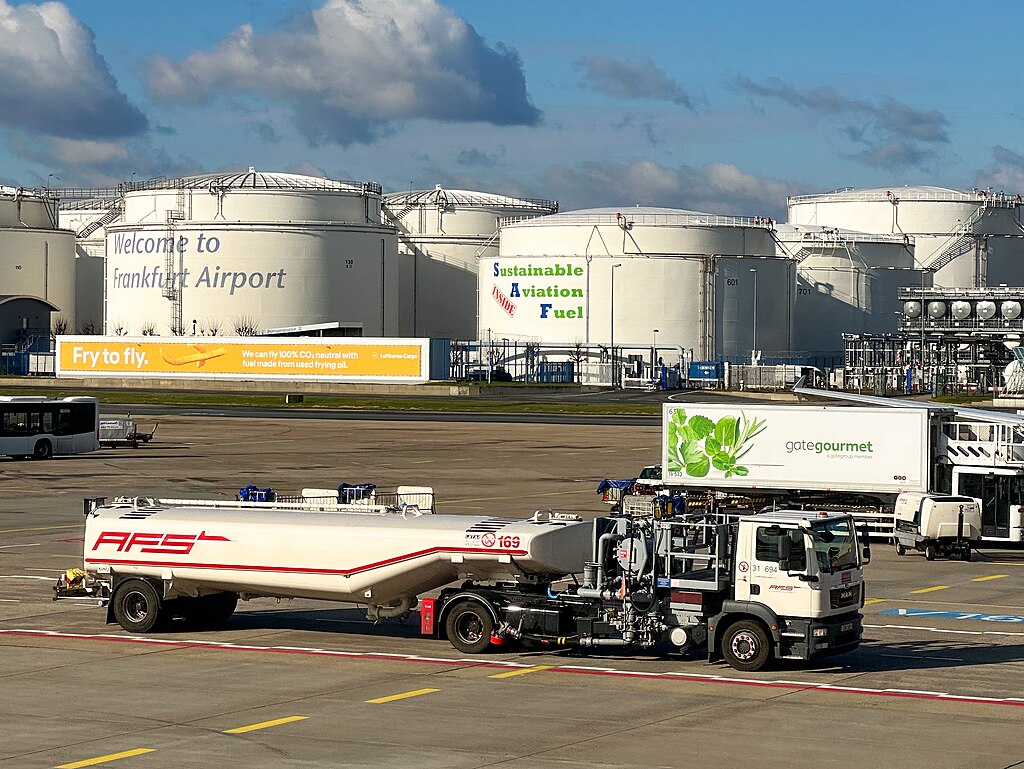The sustainable aviation fuel (SAF) industry is falling behind its 2030 targets, with global production not increasing fast enough to meet demand, according to a new report by Boston Consulting Group (BCG). Despite a 1,150% surge in global SAF supply over the past three years, new project announcements fell by 50% to 70% from 2022 to 2023 due to rising energy and operational costs, as well as economic uncertainty.
SAF currently accounts for only 0.3% of global jet fuel usage in 2024. In Europe, airlines are mandated to use 2% SAF this year, increasing to 6% by 2030. However, the high cost of SAF—three to five times more than conventional jet fuel—remains a significant barrier. BCG’s survey of over 500 executives from 200 aviation companies revealed that airlines and airports allocate just 1% to 3% of their budgets to SAF investment.
BCG Managing Director Pelayo Losada noted that while the industry is moving in the right direction, progress is far too slow. He warned that supply could fall 30% to 45% short of what’s needed by 2030 to meet climate goals. Losada criticized the widespread industry attitude of expecting others to lead the change, urging greater cross-sector collaboration.
Compounding the problem, countries like China are seeing SAF project delays due to unclear policy frameworks and low consumption. The aviation sector, which aims for net-zero emissions by 2050, is now at risk of missing key environmental targets unless investment and cooperation accelerate. Without stronger policy support, funding, and a united industry approach, SAF adoption is unlikely to meet future sustainability benchmarks.



 Singapore Budget 2026 Set for Fiscal Prudence as Growth Remains Resilient
Singapore Budget 2026 Set for Fiscal Prudence as Growth Remains Resilient  Oil Prices Slide on US-Iran Talks, Dollar Strength and Profit-Taking Pressure
Oil Prices Slide on US-Iran Talks, Dollar Strength and Profit-Taking Pressure  Nvidia CEO Jensen Huang Says AI Investment Boom Is Just Beginning as NVDA Shares Surge
Nvidia CEO Jensen Huang Says AI Investment Boom Is Just Beginning as NVDA Shares Surge  Amazon Stock Rebounds After Earnings as $200B Capex Plan Sparks AI Spending Debate
Amazon Stock Rebounds After Earnings as $200B Capex Plan Sparks AI Spending Debate  Nvidia, ByteDance, and the U.S.-China AI Chip Standoff Over H200 Exports
Nvidia, ByteDance, and the U.S.-China AI Chip Standoff Over H200 Exports  SoftBank Shares Slide After Arm Earnings Miss Fuels Tech Stock Sell-Off
SoftBank Shares Slide After Arm Earnings Miss Fuels Tech Stock Sell-Off  Trump Backs Nexstar–Tegna Merger Amid Shifting U.S. Media Landscape
Trump Backs Nexstar–Tegna Merger Amid Shifting U.S. Media Landscape  India–U.S. Interim Trade Pact Cuts Auto Tariffs but Leaves Tesla Out
India–U.S. Interim Trade Pact Cuts Auto Tariffs but Leaves Tesla Out  Global PC Makers Eye Chinese Memory Chip Suppliers Amid Ongoing Supply Crunch
Global PC Makers Eye Chinese Memory Chip Suppliers Amid Ongoing Supply Crunch  Instagram Outage Disrupts Thousands of U.S. Users
Instagram Outage Disrupts Thousands of U.S. Users  Trump Lifts 25% Tariff on Indian Goods in Strategic U.S.–India Trade and Energy Deal
Trump Lifts 25% Tariff on Indian Goods in Strategic U.S.–India Trade and Energy Deal  Dollar Near Two-Week High as Stock Rout, AI Concerns and Global Events Drive Market Volatility
Dollar Near Two-Week High as Stock Rout, AI Concerns and Global Events Drive Market Volatility  Fed Governor Lisa Cook Warns Inflation Risks Remain as Rates Stay Steady
Fed Governor Lisa Cook Warns Inflation Risks Remain as Rates Stay Steady  Sony Q3 Profit Jumps on Gaming and Image Sensors, Full-Year Outlook Raised
Sony Q3 Profit Jumps on Gaming and Image Sensors, Full-Year Outlook Raised  Nasdaq Proposes Fast-Track Rule to Accelerate Index Inclusion for Major New Listings
Nasdaq Proposes Fast-Track Rule to Accelerate Index Inclusion for Major New Listings  Global Markets Slide as AI, Crypto, and Precious Metals Face Heightened Volatility
Global Markets Slide as AI, Crypto, and Precious Metals Face Heightened Volatility  Rio Tinto Shares Hit Record High After Ending Glencore Merger Talks
Rio Tinto Shares Hit Record High After Ending Glencore Merger Talks 































